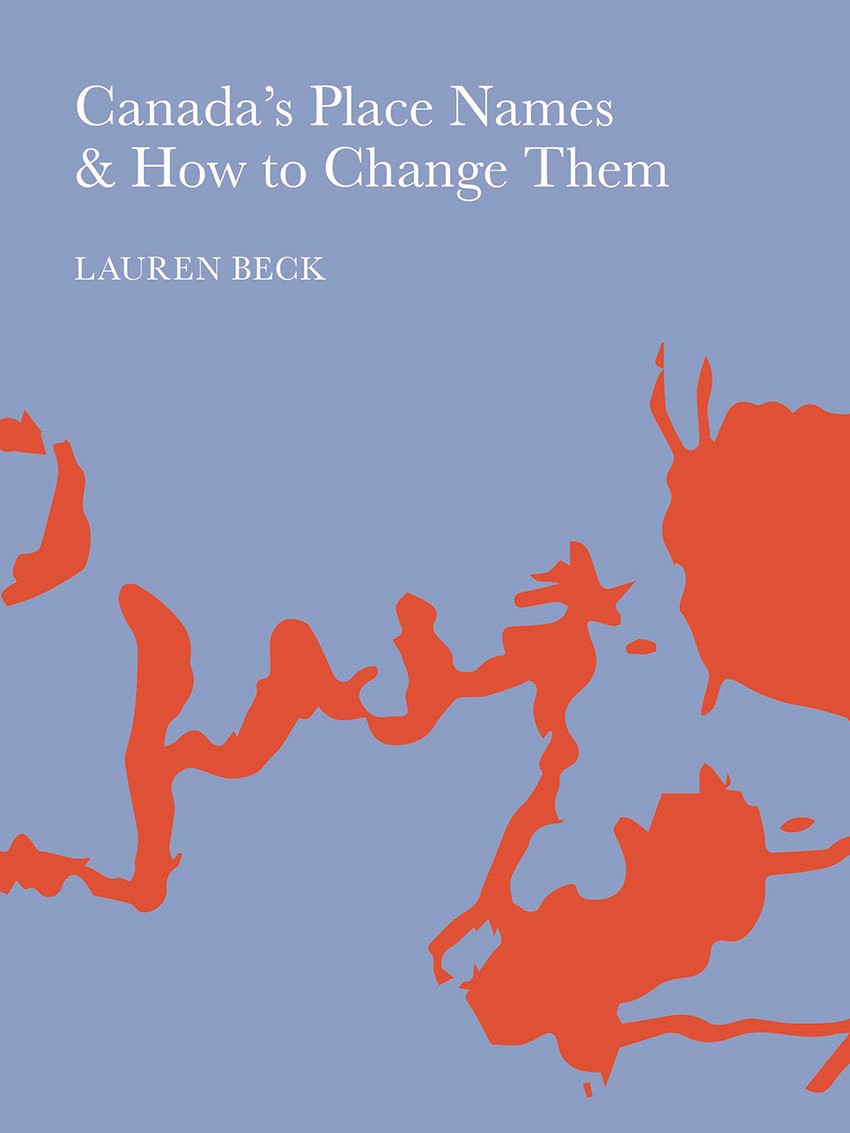CANADA'S PLACE NAMES &
HOW TO CHANGE THEM
Canada's Place Names & How to Change Them
LAUREN BECK

The first book to demonstrate how inadequately place names and visual emblems represent the presence of women, people of colour, and people living with disabilities, Canada’s Place Names and How to Change Them provides an illuminating overview of where these names came from and what they reflect.
This book disentangles the distinct cultural, religious, and historical naming practices and visual emblems in Canada’s First Nations, provinces, territories, municipalities, and federal lands. Starting with a discussion of Indigenous place knowledge and naming practices from several Indigenous and Inuit groups spanning the country, it foregrounds the breadth of possible ways to name places. Lauren Beck then illustrates the naming practices introduced by Europeans and how they misunderstood, mis-rendered, and appropriated Indigenous place names, while scrutinizing the histories of Columbian names, missionary names, and the secular and commemorative names of the last two centuries. She studies key symbols and emblems such as maps, flags, and coats of arms as visual equivalents of place names to show whose identities powerfully inform Canada’s place nomenclature.
This book also documents the policies and authorities that have traditionally governed the creation and modification of names and examines case studies of institutions and communities who have changed their names to demonstrate pathways to change.
"Lauren Beck looks at Canadian toponyms as they appear on current maps, then traces the history of their naming. It is a history of cultural tensions, often violence, as various victorious groups redefine the landscape by erasing previous markers of identity. Beck suggests that we can continue the process of renaming, now by consultation and peaceful agreement, in order to draw a new map 'that better reflects who we are.'"
Barbara Belyea, University of Calgary and editor of Peter Fidler: From York Factory to the Rocky Mountains
"Canada’s Place Names and How to Change Them is very engaging. Lauren Beck’s rhetorical style is creative and the work is well-organized and coherently structured, with a strong linking narrative throughout. Her work highlights many of the questions of power and perception relating to place names in the postcolonial period, and this book should be an influential text in onomastic scholarship both within and beyond Canada."
Maggie Scott, University of Salford and editor of The Concise Scots Dictionary (2nd ed.)
"This highly readable and politically significant book is very much of this cultural moment. As Beck convincingly demonstrates, place names reflect a society’s beliefs, and Canada’s fast changing demographic makeup and cultural values are not well represented in the nation’s current toponyms. Timely and energetically written, reinforced with excellent typesetting and printed on high-quality paper, Canada’s Place Names & How to Change Them makes a lasting scholarly contribution to Canadian Studies."
Mark Turin, University of British Columbia, BC Studies, 21 March 2023
Read on Manifold.
| Introduction : Our Place Ecumene | 3 |
| 1 Knowing in Place | 23 |
| 2 A Brief History of Settler-Colonial Naming Practices in Canada | 47 |
| 3 Gender and Canada’s Place Names | 77 |
| 4 Indigenous Names in a Settler-Colonial Context | 107 |
| 5 Marginalized Groups and Canada’s Place Names | 141 |
| 6 How to Discuss and Change Names | 171 |




